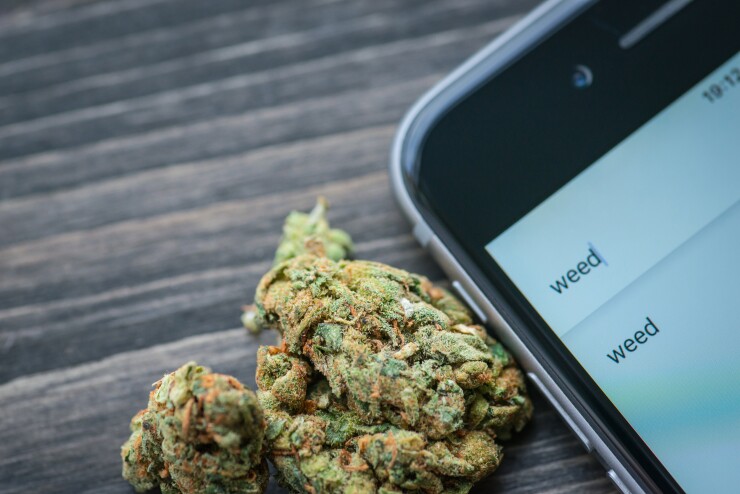Mobile and online P-to-P services may be the popular, mainstream payments service of choice for young people who don't prefer cash, but it also has a seedy underbelly, according to new survey data.
In a survey of more than 1,200 millennials using Venmo, nearly 33% said they used the service to pay for drugs such as marijuana or cocaine, and 21% cited Venmo as the payment vehicle to place bets or engage in gambling platforms. The survey was published by online student loan marketplace LendEDU, which says it singled out Venmo because 68% of respondents to an earlier survey say they use the service.
Venmo is far from alone in experiencing this problem. After all, its owner — PayPal — got a lot of blowback from its involvement with
Venmo, of course, does not endorse illegal behavior on its platforms.

"PayPal and Venmo take compliance with all applicable laws, rules and regulations seriously," Venmo said in a statement provided to PaymentsSource. "As clearly outlined in the Venmo User Agreement, people are prohibited from using Venmo for gambling or payments that involve drugs. If there is ever a situation where evidence of gambling or other illegal activity is brought to our attention, Venmo works quickly to take appropriate action."
And it's clear that things could be worse. Last year, China's Alipay launched a social media platform called
And offenses aren't always crystal clear. A website called
Joking or not, this paper trail could come back to haunt a reckless user.
And that is the best you can expect out of any payments provider, whether it is Venmo or a card brand, said Brian Riley, director of card services for Mercator Advisory Group.
"It's not really PayPal's responsibility [to monitor illegal activity]," Riley said. "They are there to facilitate the transaction."
But the record keeping is key, Riley added.
"The other side of the coin on this is that, yes, it is easy to pay your pot dealer on a regular basis, but you have now created an entire audit trail with these transactions," he said. "Once it is out there, it is always there."
PayPal and other payment providers have certain obligations, but they are not law enforcement agencies, said Riley.
"I don't know that it is fair to say Venmo is a vehicle for illegal transactions, because there are a lot of good transactions on Venmo, too," Riley said. "After all, Venmo has been getting its lift from rent payers or those sharing dinner bills, that sort of thing."
Hoboken, N.J.-based LendEDU's report followed an earlier study of more than 500,000 Venmo transactions to determine what users were buying. Beer, pizza and fantasy football costs were among the most popular items.
Because LendEDU works mostly with college students, it will poll that demographic on a wide array of topics.
"We like to focus on financial topics, such as P-to-P payments," company spokesman Mike Brown said. "There is no data from this study that we can act upon, but we just like to pick up on millennial trends and publish them on our website."





